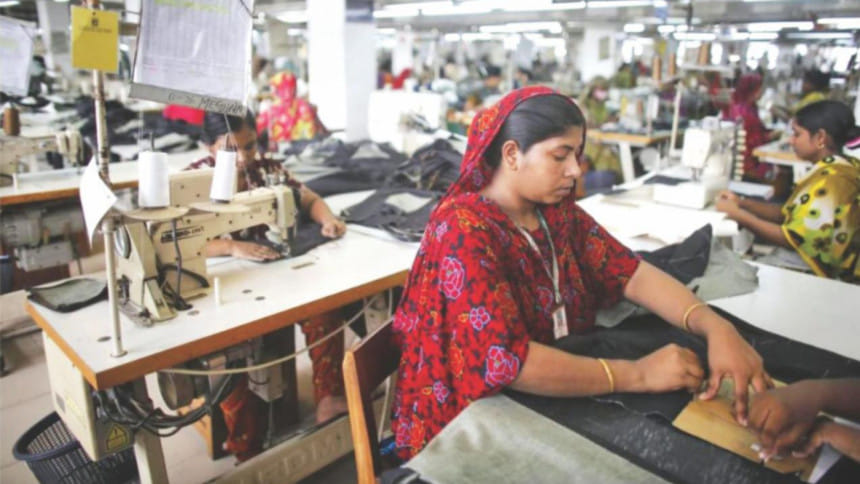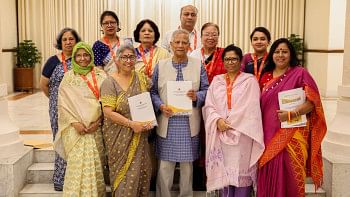Covid-19: Together we can save workers

During the course of the last few weeks, some of the world's largest apparel retailers have announced the temporarily closure of stores across Europe, the USA, and beyond, due to the onset of the Covid-19 coronavirus pandemic. Many have put a timeframe of two weeks on these closures but, in reality, the available evidence suggests they are likely to be closed for much longer. Nobody knows just how long Covid-19 will be around, but estimates suggest it could be anything between June of this year or up to the next 18 months.
Consumers are remaining at home, in many cases under the instructions of their nation's government which, in turn, is having a dramatic impact on the retail sales of brands and stores. Covid-19 is inflicting the biggest crisis yet seen by the apparel industry, which is already reeling from declining sales over the last few years, further exacerbating the financial strain on the sector. Retailers continue to have to pay the rents on their stores, the salaries of their employees, business rates and insurance, whereas there is no turnover as the stores are closed. Covid-19, for some struggling retailers, could be the last nail in their coffin.
Against this backdrop, brands and retailers are postponing the delivery of completed garments from the current orders that have already been produced by apparel factories. Furthermore, customers are telling the manufacturers not to cut fabrics and process other raw materials, which the manufacturer has already imported or stored for current orders placed by their clients.
Most factories are trying to cope with this situation the best they can but are facing production shortfalls and run the risk of having to suspend production lines. The situation gives rise to the real risk that, in order to reduce immediate costs, manufacturers may start by reducing the number of workers they employ. At best, if they do not reduce the worker numbers, they may start reducing the hours of the workers' shifts. There is a real danger of this short-term approach being taken and both of these scenarios would result in a loss of income for the workforce.
This is where my major concern lies. Many of the four million workers employed in the apparel sector of Bangladesh, as we know, have families to support, and secure work in the industry is their lifeline upon which they and their dependents rely. Who will support them during these challenging times? Millions of RMG worker are facing an extremely uncertain future.
Whilst I fully appreciate that during this critical time both retailers and manufacturers are faced with huge challenges, I also think that now, more than ever, is the time for us, as an industry, to be working together. There is now a desperate need for supportive measures that can be enacted in these grim times, both from a business perspective and for the social welfare reasons outlined above.
Retailers and brands are facing a retail environment never encountered before, and this is something that we in the Bangladesh RMG industry need to understand. Our customers face high inventory levels, the spectre of fixed costs that they cannot avoid and a currency market that is plummeting, impacting profit margins across the board. Furthermore, the prospect of goods having to be discounted at the end of the selling season portends further financial pressure upon our customers.
With all of that in mind, this current situation shines a light on our role as key manufacturing partners and, ironically, serves to strengthen our position and the long-term future of all of our workers. Now is the time for the Bangladesh RMG industry to prove to our existing and potential business partners that we desire nothing more than the establishment of long-term committed business relationships and—although we are suffering due to the market pressures being imposed upon us right now—through the forging of true, meaningful dialogue with our business partners, we can secure a brighter future for our workers and all involved in the nation's RMG sector.
Strategically and logistically, Bangladesh is crucial for global apparel supply chains. Covid-19 will not be around forever and, while there is some talk that it may come back in the future (even after it has been eradicated this time), it is likely that a vaccine will have been developed to counteract the disease. There are already vaccines in the pipeline, albeit experts are skeptical about the immediate use and effect of these vaccines as the virus is likely to mutate and change its genetic makeup.
The point I am making is that, when Covid-19 has been defeated—and I use that word because I believe that this is a war we are facing—buyers will need their suppliers in Bangladesh more than ever. There is talk of a "bounce" in sales at some point in the future, with people making up for purchasing that they have deferred in the past. When this bounce comes, brands and retailers will need Bangladesh. That is why they can't afford to let factories go bust. It is in all our interests, right through the supply chain, to work together, collaborate and support each other at the present time.
There is a broader point to be made. While I accept that we must take Covid-19 extremely seriously, and I understand that the response from governments has to be to contain the virus wherever possible, surely there is also a balance to be struck. To a certain extent, the world must go on, and that means business and commerce. We have to remind ourselves that this disease brings only mild symptoms in the overwhelming majority of cases. Those that have perished so far have been the elderly, often with underlying health conditions. I do not wish to understate the seriousness of this illness; rather, to point out that life cannot stop completely as, if it were allowed to do so, this would bring its own, very serious problems.
We have to consider that poverty is a huge killer too. In its own way, poverty kills many more people and destroys more lives than Covid-19. I reiterate that I am deeply concerned about job losses in the Bangladesh RMG industry.
All of that said, there is a precedent here. During the 2008 financial crisis, many of the world's banks were, effectively, bankrupt. But they survived, and the reason they survived was that governments around the world realised the banking institutions were too important to be allowed to fail. Their failure would have been catastrophic, and so they were supported by national governments.
Indeed, real partnership between retailers and manufacturers is now more important than ever, for both sides to support the other and to collaborate to find solutions. This is also the time that governments can prove their commitment to the apparel sector to avoid a complete crash of the economy.
The apparel industry at present needs to be supported, both by the governments of the buyers and the governments of the manufacturers, to withstand this unprecedented situation. International financial organisations such as the World Bank, the International Monetary Fund and the Asian Development Bank should come forward, take measures and formulate policies for the survival of economies, especially those of the Least Developed Countries which would be the worst economic victims of this pandemic. Donors and development partners should extend their support to the affected people, as their aid at this critical time could save more lives than ever. Viable business concerns should not be allowed to collapse due to a problem that can be defeated. Now is the time for us all to work together and tackle this problem head on.
Mostafiz Uddin is the Managing Director of Denim Expert Limited. He is also the Founder and CEO of Bangladesh Denim Expo and Bangladesh Apparel Exchange (BAE). He can be reached at [email protected].

 For all latest news, follow The Daily Star's Google News channel.
For all latest news, follow The Daily Star's Google News channel. 



Comments